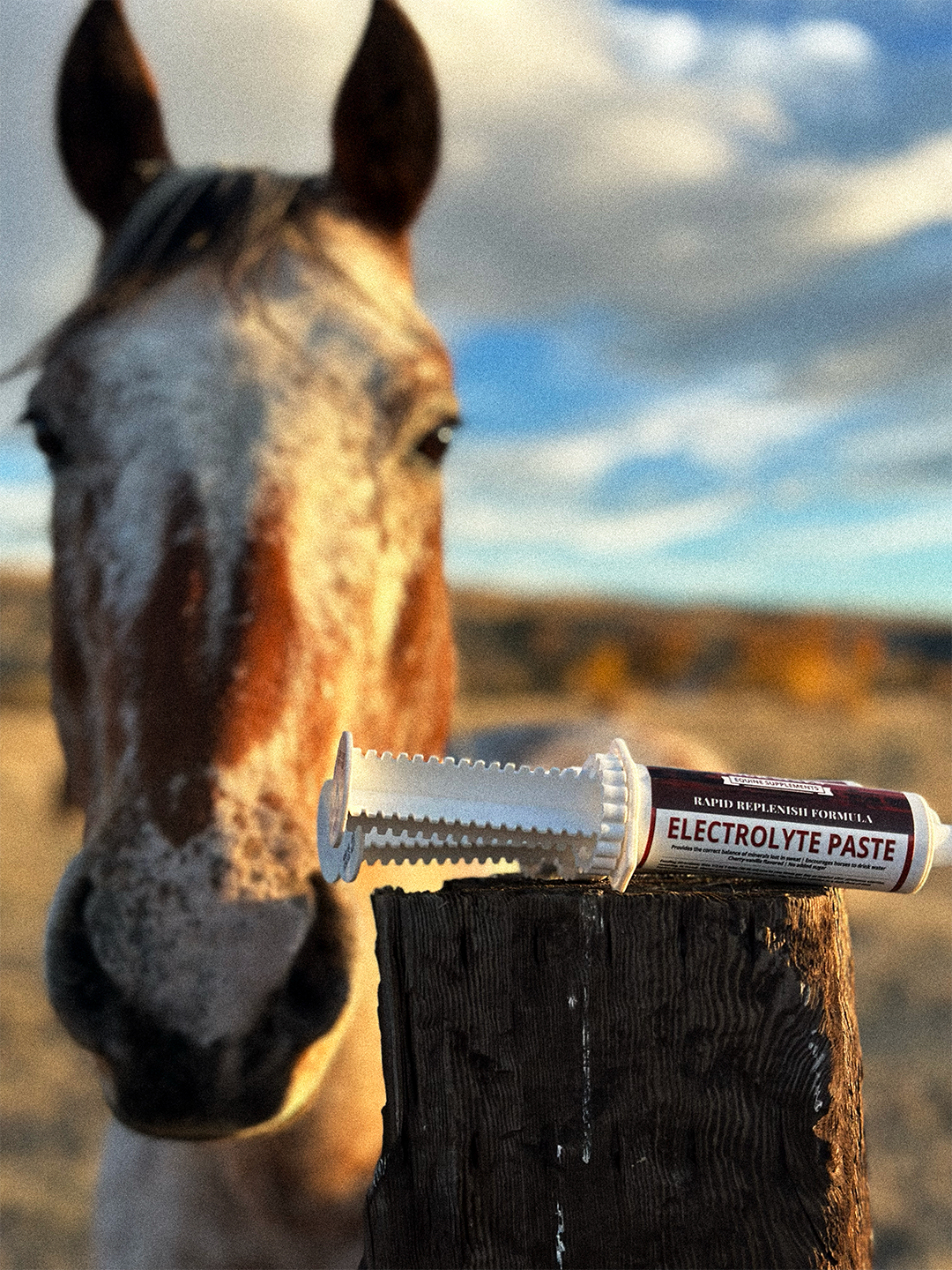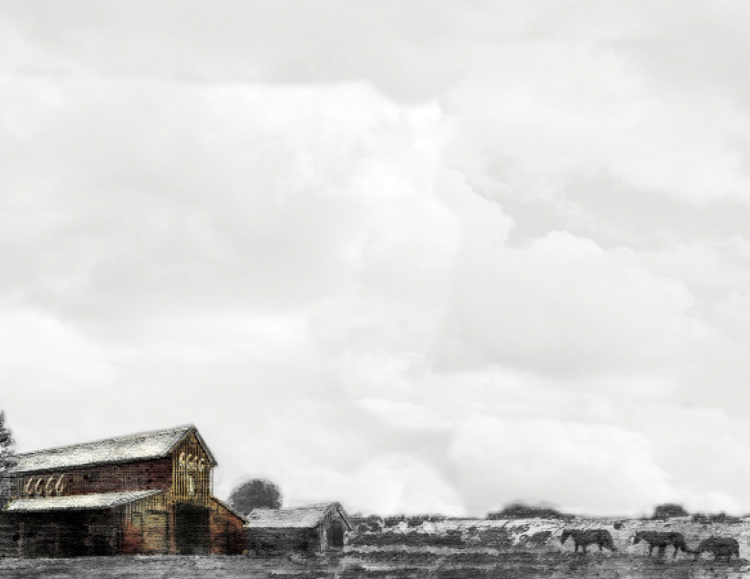How many times have you heard the old saying, “you can lead a horse to water, but you can’t make them drink”? Probably about as often as you’ve overheard barn aisle chatter about “tried-and-true” tricks to get horses to drink more — or stern warnings about what not to do.
The truth is, many of these so-called rules are really myths, and following them could actually prevent your horse from getting the fluids they need.
Hydration is the foundation of equine health. It supports healthy digestion, regulates body temperature, fuels the neuromuscular system, and even influences normal cognitive function. In fact, of the six essential nutrients horses need to survive, water is the most critical. A dehydrated horse can quickly spiral into dangerous territory, from decreased performance to colic or heat stress.
That’s why it is time to set the record straight by debunking five of the most common horse hydration myths by looking at what the science really says.
Myth #1: Beer helps horses sweat more efficiently.
There’s a long-standing old-wives’ tale that giving a horse a can of beer on a hot day will help them “sweat it out” better. In recent years, beer therapy has been used as one arm of the treatment protocol for horses with anhidrosis. The thought is that the brewers yeast in beer can help stimulate sweating, perhaps because it contains B Vitamins and other trace minerals which may influence sweat glands.
Here’s the thing though: The levels of B Vitamins within beer vary based on its production, and are likely extremely low for a horse, sometimes even non-existent. If you want to give your horse a beer that has the most likelihood of offering valuable nutrients, the beer would need to be unfiltered and unpasteurized, which is not going to be the case with your standard Bud or Coors Light.
If your goal is to support a horse’s ability to sweat, focus instead on maintaining proper hydration and electrolyte balance with 24/7 access to fresh, clean water and a scientifically formulated electrolyte supplement. Products like 6666 Electrolyte Powder and Paste are designed to replace the exact minerals that a horse loses through sweat — no brewery required.
Myth #2: You cannot let a hot horse drink cold water.
This is one of the most persistent myths in equine care, and it’s been around for generations. The belief is that offering cold water to a hot horse can cause colic, muscle cramping, and even tying-up. Perhaps this belief was instilled via Hollywood’s Black Beauty movie, but the research actually shows that following exercise, horses should have immediate access to water, and cold water is not harmful.
From a preference standpoint, studies show that immediately following exercise, cooler water is the horse’s choice, and helps them bring down their core temperature. Then, from approximately 20 - 60 minutes post-exercise, horses seem to prefer water that is lukewarm.
During cold weather, horses prefer lukewarm water compared to icy cold.
Here’s the rule of thumb to remember:
A dehydrated horse, or a horse that has been sweating or exercising, needs fluids as soon as possible to replace sweat losses and begin cooling their core temperature. Do not withhold water because you have heard this myth. Allow the horse to drink right away to help speed up the recovery process. Observe your horse’s preferences and adjust as needed to promote drinking behavior.
Myth #3: Horses only need electrolyte supplements in hot weather.
It is true that electrolyte loss ramps up in the heat, but temperature is only one factor. Horses sweat heavily during exercise regardless of the season, and their sweat contains significant amounts of sodium, chloride, potassium, and other minerals. A hard-working horse in cooler weather can lose just as many electrolytes as one doing the same work in the summer.
Electrolyte supplementation is about workload and sweat loss, not just heat. If your horse is working, traveling, competing, or under stress, electrolytes can help maintain hydration by encouraging them to drink and replacing what’s lost. Skipping the electrolytes outside of summer months can lead to deficits that affect muscle recovery, stamina, and even appetite.
Research has determined that electrolytes should be given to a horse one hour prior to exercise or transport. It’s easy to forget that no matter the season, transport almost always causes a horse to sweat. Daily supplementation of Electrolyte Powder is a great management choice, and providing Electrolyte Paste prior to more intense exercise, transport, or during long-duration exercise is a best practice.
Myth #4: Horses will drink when they’re thirsty, so if they’re not drinking, they must not need water.
The “they will drink when they’re ready” mindset works for some animals, but horses don’t always self-regulate water intake, especially in new environments, during travel, or after hard work. Stress, unfamiliar-tasting water, or even a change in water temperature can cause them to drink less than they need.
By the time a horse feels thirsty, they may already be mildly dehydrated. That’s why it’s important to encourage drinking proactively, particularly when you know conditions are ripe for fluid loss. Flavoring water with a splash of apple juice, offering soaked hay or beet pulp, and ensuring access to clean, fresh water at all times are practical ways to keep hydration on track. Electrolyte supplementation can also help stimulate a stronger thirst drive (similar to eating a salty meal).
Myth #5: Adding free choice salt to a horse’s feed or stall is enough to keep them hydrated.
Salt (sodium chloride) is essential for hydration, but it’s only one piece of the puzzle. A horse’s sweat contains more than just sodium and chloride, it also carries away potassium, calcium, and magnesium, all of which play key roles in nerve and muscle function. Simply tossing a scoop of table salt into the feed won’t replenish those other electrolytes, especially in a horse that’s sweating heavily.
Similarly, relying solely on a salt block or mineral block will not ensure that your horse is replacing key electrolytes. While we encourage horse owners to provide a free choice salt block for enrichment, it is near impossible for a horse to lick enough of that block to replace the nutrients that were lost in sweat. The block is an added benefit, not something to rely on.
A balanced electrolyte supplement is specifically formulated to replace all the key minerals lost in sweat in the correct ratios for the horse, ensuring proper neuromuscular function, as well as recovery. Free-choice plain salt should still be available, but for active horses, it is not a complete solution.
Quick Hydration Test for Horse Owners
Want to know if your horse is drinking enough? Here are a few easy checks:
-
Skin Pinch Test: Pinch the skin on your horse’s neck into a “tent.” It should return to normal and snap back quickly within 2-3 seconds. If the skin returns very slowly, the horse is likely dehydrated.
-
Capillary Refill Time: Gently press on the horse’s gums until they turn white, then release. Color should return to pink in under 2 seconds. If not, the horse is likely dehydrated.
-
Manure Consistency: Dry, firm manure can indicate reduced water intake.
The Role of Electrolytes in Hydration
Water alone is important, but it cannot fully restore hydration status on its own. Electrolytes are a necessity to rebalance mineral status and fluid balance within the body.
The 6666 Electrolyte Powder and Paste was developed to deliver the correct concentration and levels of minerals in a tasty form that your horse will actually eat. Both electrolyte supplements also contain B Vitamins for additional support (leave the beer in your fridge!). Whether you use Paste for quick recovery while on-the-go, or Powder for daily support, you can trust you’re giving your horse exactly what their body needs to perform and recover.
Research-backed care, including access to fresh water at all times, proactive hydration strategies, and balanced electrolyte supplementation, will always serve your horse better than gimmicks or guesswork. Don’t fall for the myths out there — stick to the science!



